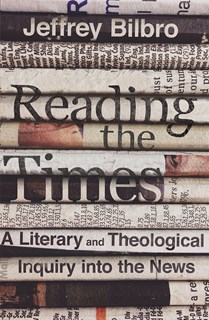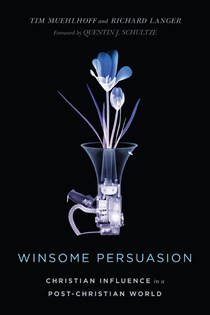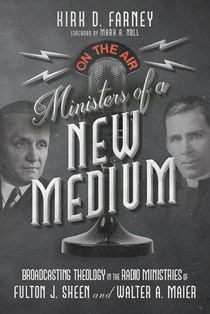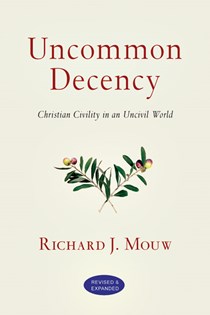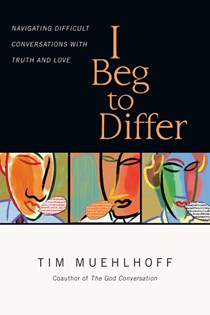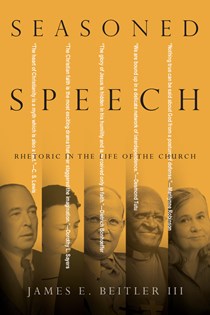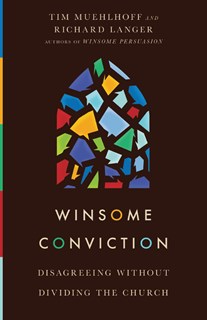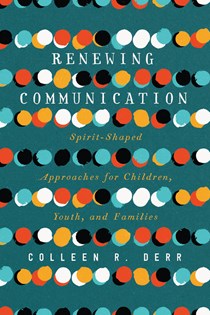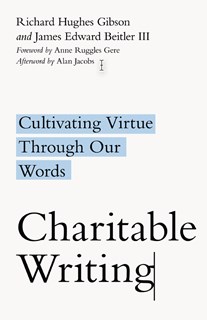Approaching the News with Intellectual Virtue
By Travis Dickinson, author of Wandering Toward God
The slogan "the news never sleeps" is now something of an understatement. We not only have the so-called twenty-four-hour news cycle, but we also have many streams of twenty-four-hour news cycles from which we can choose. Harvard University's The Future of Media Project calculates there are nearly 3,100 newsrooms of major US daily news sources representing a wide spectrum of viewpoints and approaches.
With all this coming at us, it often seems like the world has spun out of control. We are forced to look attentively at the tragedies of war, school shootings, scandals—both political and ecclesiastical—and many other stranger-than-fiction stories that break, shock us, and then fade before the day is out. While the news is supposed to be without bias or opinion, all stories of course get filtered through an editorial process. It's precisely here that biases can subtly creep in. And much of the news we get today is, without apology, slanted toward a particular bias or even accompanied by commentary and opinion. To be sure, there is news that is neutral or even from time to time positive toward Christian faith. But there are also some loud voices that are quite hostile toward Christian faith. This, it seems to me, is the current state of the news of the world.
Engaging the News of the World
As Christians, what should our approach be to this stormy deluge of the news of the world?
We probably can't, at this point, ignore the news. It is woven into the fabric of our daily lives, especially for any of us who have digital engagement. Many of us find out what's going on, perhaps even on the other side of the planet, in real time with a ding from the devices in our pockets. But even if we could ignore the news of the world, I suggest we shouldn't. There's often a strong pull in us to shelter in place from perceived threats to our Christian faith. Christians tend to cloister in safe places so that we are not harmed by the messages of the world.
There are certainly times in life to take shelter from threats, and while I understand this response, if we ignore the news of the world, it limits our ability to effectively engage the world. At the risk of being too obvious, the news is a primary source to know what's going on in the world around us. But it also informs us culturally on how the world around us is thinking about what's going on. To ignore all this would not steward well our cultural moment in history: in being, as Jesus put it, the salt of the earth and the light of the world (Matthew 5:13-15).
Sipping, Not Gulping the News
We shouldn't hide from the news of the world, but we also shouldn't imbibe the ever-relentless stream of the news. Let's be honest. Some people are addicted to the news. You know who you are! They can't seem to go without a news update even for a few minutes.
Constant consumption of the news is not only unnecessary, but it is not good for the soul. The reality is that the same handful of news stories tends to dominate media outlets such that "breaking news" is often, at best, one or two new details of a story. We typically don't need to gulp the news down. We just need a sip here and there, and then we'll be sufficiently informed.
The addiction to the news becomes a real problem when we are consuming news-media more than experiencing reality for ourselves! The news provides information about the reality of others as they have experienced it. We are of course naturally curious and want to know what's happening in the world. But if we don't ever get out there and experience the world for ourselves, then it's time to go catch a wave or climb a mountain. When we come back in, the news will still be there, and we can get caught up in short order.
Intellectual Virtue
Okay, but how should we consume the news? The answer to this is going to involve a brief discussion about intellectual virtue.
The worst thing that we can do is passively absorb all that comes at us. This is an intellectual vice no matter if what comes at us is a Christian or anti-Christian message. If all we ever do is passively absorb what comes at us, then even if it is a Christian message, we hold it uncritically. The fact that we hold a Christian message versus an anti-Christian message is really just an accident of our circumstances. Had it been some other message, we'd be holding that one.
Instead, we need a critical mind. Having a critical mind means that if we hold a view, we hold it on the basis of knowledge. We hold it because of what we know. Now, we can't always just know whether something is true. For almost everything that we know, we are guided by reason and evidence that support our belief. When we base our beliefs on reason and evidence, we don't hold our views accidentally. In fact, we hold our views in an intellectually virtuous way.
While this is a discussion for another day, we should have a critical mind for all our beliefs, including our Christian beliefs. We should be Christians not accidentally but because we have reason to believe that Christianity is true, good, and beautiful. Our beliefs should be a matter of what we know is the case. And there is good reason and strong evidence to believe that Christianity is indeed true, good, and beautiful.
Okay, back to the news. As we sip on our dose of the news of the world, we need to exercise intellectual virtue. What is an intellectual virtue? An intellectual virtue is a habit of the mind that leads to rationality and ultimately to truth. Intellectual virtues include things such as open-mindedness, curiosity, and intellectual versions of diligence, prudence, and courage.
While all the intellectual virtues should be applied to our consumption of the news, I suggest that two in particular be brought to bear on the messages that come at us. We need to be both open-minded to the truth and intellectually steadfast in what we already know. Let me explain.
Being Open-Minded and Intellectually Steadfast
Being open-minded, we approach the news with openness to what's going on in the world and the various ways of understanding it. This means that we ought to go to news outlets that are of different political and religious persuasion, as well as our trusted sources. All ideas that come at us should get a hearing, and once again, this is a hearing of evidence and reason. We should be open to ideas precisely because they may be true. And these ideas are ways in which fellow human beings see the world. If a claim turns out to be false and we can offer evidence for this, then this is a very good thing. We can say why it is false.
Now, being open-minded doesn't mean we give every view equal attention. As Aristotle pointed out long ago, the excess of any virtue turns it into a vice. Too much courage turns courage into acting rashly. Too much prudence turns the virtue into complete inaction. Similarly, overdoing open-mindedness, where we give too much attention to all ideas, would not be intellectually virtuous. This situation, I take it, is what G. K. Chesterton had in mind when in 1908, he wrote in the Illustrated London News, "An open mind is a mark of foolishness, like an open mouth. Mouths and minds were made to shut; they were made to open only in order to shut." Our minds should shut on the truth. But to do so, they have to open in order to consider an idea and its truth.
Along with being open-minded, we should also be intellectually steadfast. Being steadfast is when we don't allow things to come along and simply topple all that we already know. This is sometimes called intellectual tenacity. Presumably, we know a lot about the world. When we hear something that runs contrary to our knowledge, we don't dismiss it outright, but we also don't let it have its way with us. We take what we know, and we evaluate the claim for its truth. We may have to revise our beliefs, but this is determined by one's total evidence.
Here's the picture: We, with an open mind, give ideas a fair hearing, but we bring what we know about the world to bear on these ideas. We steadfastly stick with what we know is true until the evidence bears out the fact that it isn't.
In sum, we should not ignore the news. It is a terrific source for understanding our cultural moment. But like every powerful thing, we should approach it carefully. We ought to approach with intellectual virtue. In particular, we should be open-minded, knowing that we will be letting in views with which we disagree. But we should also be steadfast in what we already know so that our minds can close on the truth.





